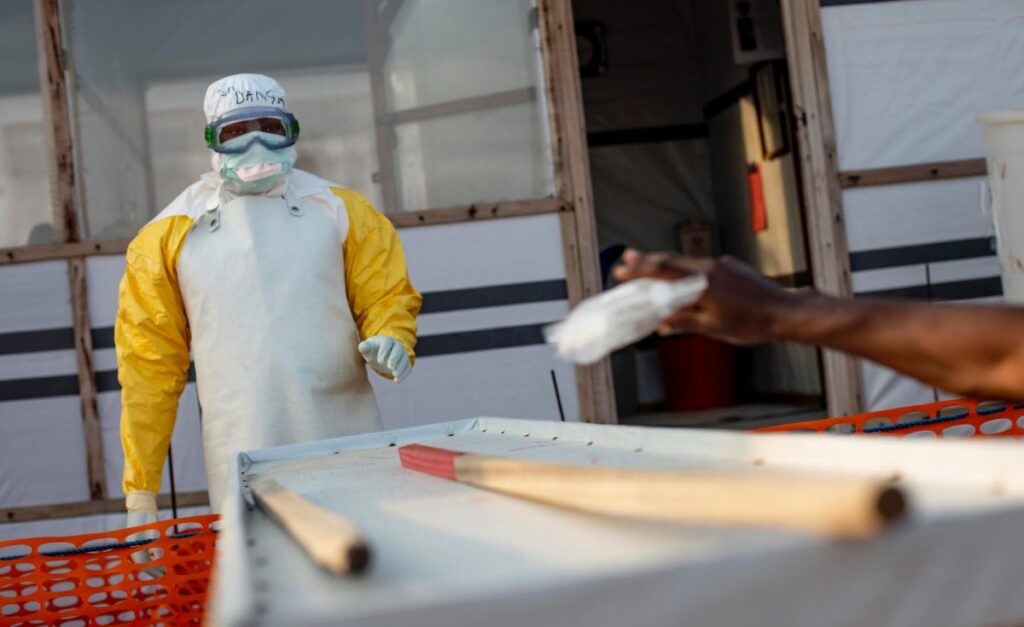WHO has delivered 12 tonnes of emergency medical supplies to the DR Congo as the country battles its 16th Ebola outbreak.
The World Health Organisation (WHO) has delivered 12 tonnes of emergency medical supplies and equipment to support the Democratic Republic of Congo (DRC) in responding to its latest Ebola virus disease outbreak.
The supplies, shipped from WHO’s Emergency Response and Preparedness hub in Nairobi, include personal protective equipment (PPE) sufficient for 120 frontline workers for one month, patient isolation kits, and water, sanitation and hygiene materials.
The WHO Regional Office for Africa disclosed this on Sunday in a post on X.
Keep up with the latest headlines on WhatsApp | LinkedIn
Earlier on 5 September, the WHO announced the release of $500,000 from its Contingency Fund for Emergencies to support the response.
WHO’s Director-General, Tedros Ghebreyesus, said the funds would help strengthen surveillance, contact tracing, testing and infection prevention.
Vaccination of responders
WHO said frontline responders from the agency, the DRC Ministry of Public Health, Hygiene and Social Welfare, and the Africa Centres for Disease Control and Prevention (CDC) are being vaccinated against Ebola before deployment to the field.
The global agency added that the DRC has a stockpile of 2,000 Ebola vaccine doses and is in the process of procuring additional supplies in the coming days.
These measures follow the declaration of an outbreak in Kasai Province of the DRC, where 28 suspected cases and 16 deaths, including four health workers, had been reported as of 5 September.
Ebola virus disease, first identified in 1976, is a rare but severe illness with high fatality rates.
It is transmitted to humans through contact with infected animals such as fruit bats. It spreads from person to person through direct contact with blood, body fluids, contaminated objects or the body of a deceased patient.
The DRC has experienced 15 previous outbreaks, more than any other country in the world. Its last outbreak in Equateur Province in 2022 was contained within three months.
Kasai Province, the current epicentre, previously recorded outbreaks in 2007 and 2008.
Nigeria on alert
Meanwhile, the Nigeria Centre for Disease Control and Prevention (NCDC) has said there are no cases of Ebola virus disease in the country, but that preparedness measures have been activated.
In a public health advisory issued on Saturday, the agency said it is working with relevant ministries, departments and development partners to enhance readiness.
According to the NCDC, ongoing measures include heightened surveillance at borders and points of entry, as well as infection prevention and control measures in health facilities nationwide.
“Our risk communication and community engagement structures have also been alerted to ensure timely and accurate information is provided to Nigerians, as well as track and address perceptions, rumours, and misinformation,” the advisory stated.
The NCDC also urged Nigerians to practise good hygiene, avoid contact with bush meat such as bats and primates, and promptly report unusual symptoms.
Travellers returning from affected countries within the past 21 days were advised to watch for symptoms including fever, sore throat, diarrhoea, weakness, vomiting or unexplained bleeding, and to immediately contact health authorities if they occur.


